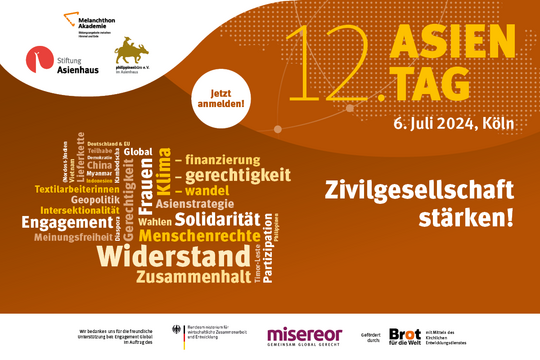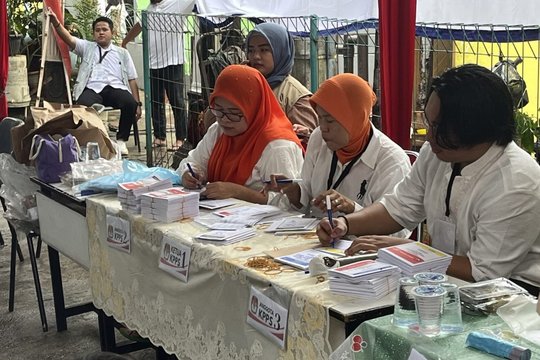The Essential Element Water
No life without water – we all know that. The precious liquid is needed as drinking water for land dwellers, and it provides a habitat for flora and fauna in rivers, lakes, mangrove forests and oceans. In our rational world, we often talk about water in numbers. However, water can be experienced with all the senses – and in this issue, we would like to take you on a journey to the water of Southeast Asia in its many forms, at least as far as seeing and hearing are concerned.
In Indonesia, home means “tanah air,” which directly translates as land and water. How the appreciation for water is expressed is something we would like to explore. Indigenous cultures know and honor the fundamental importance of water as the basis of life, but also its destructive power (floods/tsunamis/rising sea levels). We therefore want to collect – in addition to analytical articles – songs, dances, rituals, and stories related to water.
Water and the Economy
"Who gave you the land and the water that you now privatize?" asks singer-songwriter Sarah Lesch in her song Testament. Water has been commodified worldwide. The market for bottled water in Southeast Asia is growing steadily because tap or well water is considered unclean, large sources of drinking water are being tapped and are running dry for the population. Who are the major international and regional players in the water market? Where does the water that is sold in gallons and plastic bottles come from and what are the consequences?
Many products pose a threat to clean water in their production, such as mining, the textile industry or aquacultures. Unsustainable agriculture has a drastic impact on the water supply. Tourism also has dramatic consequences: the water consumption of large hotel complexes, for instance, causes groundwater levels to fall.
The scarcer the water or the greater the interests associated with water, the greater the potential for conflict (dams, coastal regions, border conflicts). The consequences of climate change – through extreme weather events or long-term consequences of climate change – have manifold impacts on water resources, sea, and groundwater levels in Southeast Asia. Cambodia, for example, is home to Southeast Asia's largest freshwater reservoir, the Tonle Sap. However, this biotope is under increasing threat from human influences.
Water Conservation
It is important to take a closer look, even when the protection of oceans, rivers, and lakes is claimed to be heralded. Advocates of dive tourism often suggest that it contributes to protecting the underwater world. Maybe so, but what are the 'side effects'? The situation is similar with the restriction of fishing grounds, which, for example, deprives the traditionally nomadic Badjao people in Southeast Asia of their livelihood. The much-discussed issue of plastic waste in rivers, lakes, and oceans also begs to ask: who produces it? Who consumes it? What alternatives are there?
We would like to address these and other aspects in the 2/2024 issue of südostasien in various formats: portraits of actors, commentaries, reports, background reports, analyses, interviews, photo essays, as well as reviews of films, music, or books. We look forward to contributions that exemplify individual aspects mentioned above, as well as overview articles on structural issues and contexts.
Deadline
The deadline is March 30, 2024, at the latest. Only in individual cases and after prior consultation with the editorial team, a later deadline may be possible. Please send us a short abstract in advance (max. 1000 characters).
Contact the editorial team:
Robin Eberhardt: robin.eberhardt(at)gmail.com
Anett Keller: soa_mag(at)asienhaus.de
Mirjam Overhoff: mirjam.overhoff(at)philippinenbuero.de
Eileen Popp: Eileen.popp(at)web.de
Katja Hanke (Rezensionen): soa_rezensionen(at)asienhaus.de









